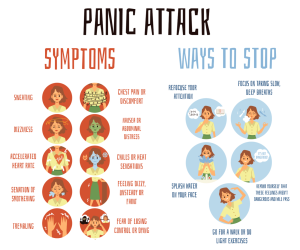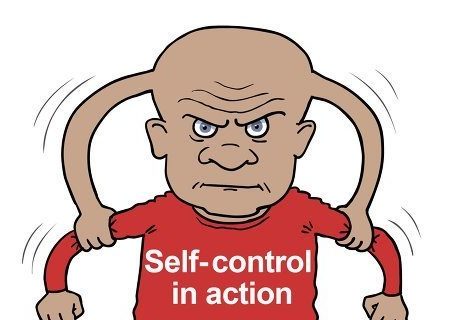Do you feel like you’re always in control? Or do you sometimes feel like things are happening to you, and you have no say in what happens? If it’s the latter, then you may be dealing with some control issues. There are many ways that control issues can show themselves. For example, you might feel like you’re not in charge of your life, or like you’re out of control when faced with a difficult situation. In this article, we’ll discuss what control issues are, and how to address them.
Contents
- 1 What Are Control Issues?
- 2 Signs That You Are Having Control Issues
- 3 Causes Of Control Issues
- 4 Negative Impact Of Control Issues
- 5 What Triggers Control Issues?
- 6 How To Address Your Control Issues?
- 7 Medication Options For Control Issues
- 8 Lifestyle Changes
- 9 Preventing Control Issues
- 10 Helping Someone Who Has Control Issues
- 11 Conclusion
- 12 A Word From Therapy Mantra
What Are Control Issues?

Control issues are when you feel that you don’t have any control over what happens in your life. There can be many reasons why this might be happening. Some people might feel powerless to change things around them, or they’re afraid of making mistakes or taking risks. They might also miss out on opportunities because they’re not sure if those opportunities will work out well for them.
If these feelings continue and are not treated, they may get worse and lead to other mental health problems like depression, anxiety disorders, substance abuse problems, eating disorders etcetera”.
Signs That You Are Having Control Issues
You might feel like you’re always in control, but that isn’t true. If you have these signs, it could mean that you are having some type of control issues:
- Doing Everything Yourself And Not Letting Others Help. You might think only you can do certain things well and completely ignore others who offer to help.
- Being Overly Responsible For Other People’s Problems. When someone asks for your help with a problem, don’t ask them what they want to do about it first. Take action on their behalf right away.
Causes Of Control Issues

There are many reasons why people develop control issues. For example, they might have experienced a traumatic event in their childhood or teenage years that made them feel like life is unpredictable and out of their hands forever. They could also be experiencing physical symptoms such as fatigue or stress which makes it hard to focus on anything else than what’s happening around them at the time. It could even stem from being overly critical of others because when someone criticizes us we may start feeling powerless over our own lives too.”
Negative Impact Of Control Issues

Control issues can have a negative impact on your life. For example, they might make it hard for you to take risks or try new things because you’re afraid of what might happen if those things don’t work out well for you.
- Panic Attacks: When you’re feeling out of control, your body releases adrenaline as a way to protect you. This can cause panic attacks which are intense episodes of fear and shortness of breath.
- Depression: When you feel like you have no control over your life, it can lead to depression. You might start feeling hopeless and helpless about the situation.
- Anxiety Disorders: Anxiety disorders are when you feel really anxious or worried all the time for no apparent reason. If you’re experiencing control issues, this could make your anxiety worse.”
What Triggers Control Issues?
Control issues usually arise from a feeling of being powerless. It might be because:
- You feel that your needs are not met, which is why you would rather do everything yourself than rely on other people.
- Your self-esteem is low and tends to depend on the validation of others for you to feel good about yourself.
- You were raised in an environment where things are done a certain way or when lives revolve around your parents’ schedules.
- You were taught by example – maybe one parent was controlling while the other was submissive so you learned these traits and they became ingrained in who you are today.
- There has been an important event (like having kids) that changed your life significantly, causing anxiety over new responsibilities.
- You fear loss or abandonment if things don’t go your way.
- You are unable to trust others, which could be due to past experiences or for no apparent reason at all.
How To Address Your Control Issues?

There are many ways that you can address your control issues.
- Cognitive Behavioral Therapy: Cognitive behavioral therapy, or CBT for short, is a type of therapy that helps you to change the way you think about things. This can help you to start feeling more in control of your life.
- Support Groups: Joining a support group can be really helpful because it allows you to connect with other people who are going through the same thing as you. This can make you feel less alone and more supported.
- Medication: If your control issues are causing intense anxiety or panic attacks, medication may be recommended to help ease those symptoms.”
So if you’re experiencing any of these signs, it’s important to seek help from a professional. Control issues can be treated, and there are many resources available to help you get started today!
Medication Options For Control Issues

There are many medication options that can be prescribed to help you manage your control issues.
- Antidepressants: Antidepressants are used to treat depression, but they also have an important role in treating anxiety disorders and panic attacks.”
- Antipsychotics: Antipsychotics are used to treat mental illnesses such as schizophrenia. However, they can also be prescribed to help with control issues.”
- Benzodiazepines: Benzodiazepines are a type of medication that is used to treat anxiety disorders and panic attacks. They work by helping to calm the nervous system down.”
- Beta-Blockers: Beta-blockers are a type of medication that is used to treat heart conditions. However, they can also be prescribed to help with control issues.”
Lifestyle Changes

There are some lifestyle changes that you can make in order to help manage your control issues.
- Exercise: Exercise releases endorphins which have mood-boosting effects. It can also help you to feel more in control of your body.”
- Yoga: Yoga is a type of exercise that combines stretching and breathing exercises. It can be really helpful in managing stress and anxiety.”
- Stress Management: Learning how to manage your stress is an important step in managing control issues. There are many different techniques that can help, such as deep breathing, visualization, and mindfulness.”
- Journaling: Journaling can be a great way to track your progress in addressing your control issues. It can also help you to process any feelings or thoughts that you’re experiencing.”
If you’re struggling with control issues, don’t hesitate to reach out for help! There are many resources available to you and with the right treatment, you can start feeling more in control of your life. Some of these resources include cognitive behavioral therapy, support groups, and medication. Address your control issues today and start living a happier life!
Preventing Control Issues
If you’re concerned that your child might be experiencing control issues, there are some things that you can do to help.
- First, it’s important to talk to them about what’s going on. Let them know that you’re there for them and that they can talk to you about anything.
- Second, make sure that they have outlets where they can express their feelings. This could be something like writing, painting, or drawing.”
- Third, set boundaries with them and enforce them consistently. This will help your child to learn how to respect rules and limits.”
- Fourth, provide positive reinforcement when they display good behavior. This will help them feel more in control and motivated to continue behaving well.”
- Finally, give them responsibility in the household by having them do chores or other tasks. This will help to reinforce that they are capable of taking care of themselves and others.”
Helping Someone Who Has Control Issues

If you know someone who is struggling with control issues, there are some things that you can do to help.
- First, be supportive and understanding. Let them know that you’re there for them and that they can talk to you about anything.”
- Second, make sure that they have outlets where they can express their feelings. This could be something like writing, painting, or drawing.”
- Third, set boundaries with them and enforce them consistently. This will help your loved one to learn how to respect rules and limits.”
- Fourth, provide positive reinforcement when they display good behavior. This will help them feel more in control and motivated to continue behaving well.”
- Fifth, give them responsibility in the household by having them do chores or other tasks. This will help to reinforce that they are capable of taking care of themselves and others.”
- Finally, if you’re concerned about their mental health, encourage them to seek professional help.
There are many resources available to them and with the right treatment, they can start feeling more in control of their life. Address your loved one’s control issues today and start living a happier life!
Conclusion
It’s clear that a lot of people struggle with control issues. For some, it may be a matter of overcompensating for feeling out of control in other areas of their lives. For others, it might be a fear of the unknown or a lack of trust in themselves and their abilities. The good news is that there are ways to work on these issues and learn how to let go. If you’re interested in exploring this further, please reach out for help. We would love to talk with you about your specific situation and help you find the tools you need to move forward.
A Word From Therapy Mantra
Your mental health — Your psychological, emotional, and social well-being — has an impact on every aspect of your life. Positive mental health essentially allows you to effectively deal with life’s everyday challenges.
At TherapyMantra, we have a team of therapists who provide affordable online therapy to assist you with issues such as depression, anxiety, stress, workplace Issues, addiction, relationship, OCD, LGBTQ, and PTSD. You can book a free therapy or download our free Android or iOS app.


